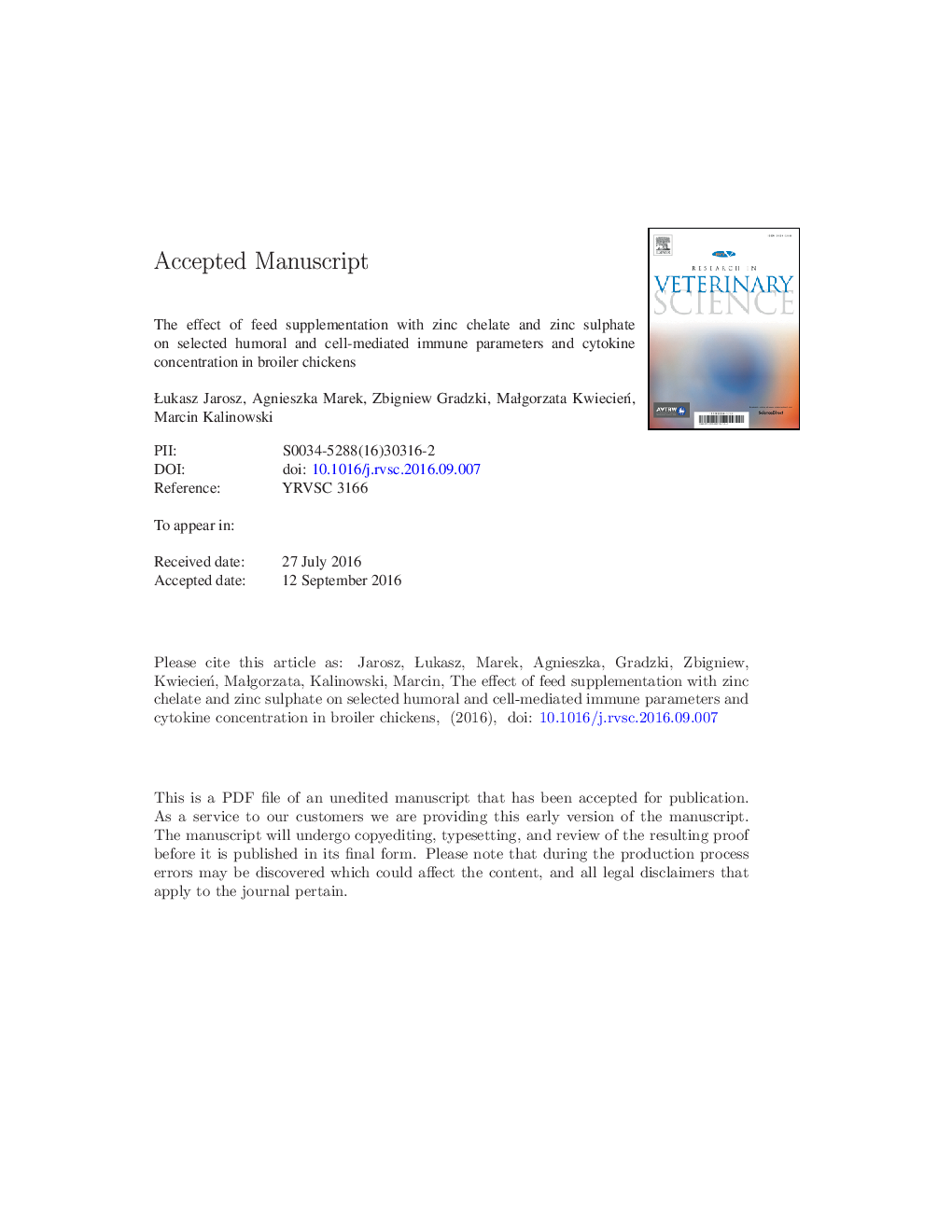| Article ID | Journal | Published Year | Pages | File Type |
|---|---|---|---|---|
| 5543987 | Research in Veterinary Science | 2017 | 34 Pages |
Abstract
The ability of poultry to withstand infectious disease caused by bacteria, viruses or protozoa depends upon the integrity of the immune system. Zinc is important for proper functioning of heterophils, mononuclear phagocytes and T lymphocytes. Numerous data indicate that the demand for zinc in poultry is not met in Poland due to its low content in feeds of vegetable origin. The aim of the study was to determine the effect of supplementation of inorganic (ZnSO4 and ZnSO4+ phytase enzyme), and organic forms of zinc (Zn with glycine and Zn with glycine and phytase enzyme) on selected parameters of the cellular and humoral immune response in broiler chickens by evaluating the percentage of CD3+ CD4+, CD3+ CD8+, CD25+, MHC Class II, and BU-1+ lymphocytes, the phagocytic activity of monocytes and heterophils, and the concentration of IL-2, IL-10 and TNF-α in the peripheral blood. Flow cytometry was used to determine selected cell-mediated immune response parameters. Phagocytic activity in whole blood was performed using the commercial Phagotest kit (ORPEGEN-Pharma, Immuniq, Poland). The results showed that supplementation with zinc chelates causes activation of the cellular and humoral immune response in poultry, helping to maintain the balance between the Th1 and Th2 response and enhancing resistance to infections. In contrast with chelates, the use of zinc in the form of sulphates has no immunomodulatory effect and may contribute to the development of local inflammatory processes in the digestive tract, increasing susceptibility to infection.
Related Topics
Life Sciences
Agricultural and Biological Sciences
Animal Science and Zoology
Authors
Åukasz Jarosz, Agnieszka Marek, Zbigniew GrÄ
dzki, MaÅgorzata KwiecieÅ, Marcin Kalinowski,
